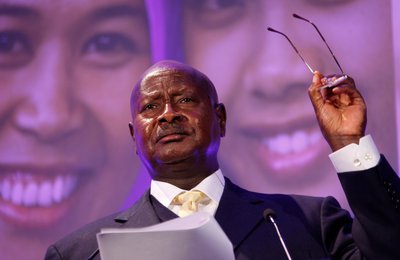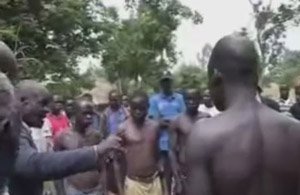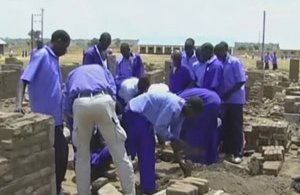On Friday 1 October 2010, Ugandan Principal Judge Justice James Ogoola bolstered efforts by local peace activists and civil society organisations working for peace, justice and reconciliation in Uganda by highlighting the need for a national truth seeking and reconciliation forum. Within the judicial hierarchy in Uganda, a Principle Judge is the most senior judge in the High Court charged with supervision and administration of all other judges and all divisions within the court, including the recently created War Crimes Division (WCD). Justice Ogoola was responsible for the establishment of the WCD but he has always maintained that traditional justice mechanisms must play integral part in any functioning accountability and reconciliation process in post-conflict Uganda. The Honourable Justice reiterated similar sentiments last week while delivering a key lecture on transitional justice dilemmas in Uganda. He was the key note speaker at this year’s Beyond Juba Memorial Lecture at Makerere University Senate Hall in Kampala. This prestigious Memorial Lecture Series is organised by the Beyond Juba Transitional Justice Project: a joint initiative of the Refugee Law Project, the Human Rights and Peace Centre, and the Faculty of Law, Makerere University. The project aims to build consensus on sustainable peacebuilding and national reconciliation process in Uganda.
Justice Ogoola called upon the government of Uganda to establish a national peace and reconciliation commission. He said :“the pearl of Africa is not shinning bright as it used to be due to many issues shrouded in a thick blanket ... corruption is too much . we need peace, we need justice.” In his argument for a peace and reconciliation commission Justice Ogoola called attention to the past and Uganda’s future. “We shall be celebrating 48 years of independence next week but what do we have to show in the national balance sheet?” he said.
His Lordship Ogoola’s statement reiterates what many people in Uganda strongly believe, that given our history and current politics, truth seeking is an important prerequisite for future peace, justice and national reconciliation. It also brings the debate on peace and justice to the forefront again. Particularly, this dialogue resonates with Uganda’s contexts where commentators tend to narrowly portray justice as solely prosecutorial. Ogoola said the pain in the hearts of Ugandans would reduce once the truth is revealed. He cited a whole range of unresolved past and ongoing abuses including the 1966 attack on Buganda Kabaka’s Palace, the assassination attempt against former President Apollo Milton Obote, and the 1971 Idi Amin coup - many of which cannot by law be satisfactorily prosecuted and yet underlie Uganda’s current turmoil. Reflecting on the current context and politics in Uganda, Ogoola lamented that: “The country is in coma. The system is falling apart. All political parties seem to be sick with a disease called electioniosis which is caused by greed.”

That a high court judge is calling for a truth-seeking process is an important milestone in broadening transitional justice discourses in Uganda because for several years now, civil society’s advocacy for comprehensive accountability and national reconciliation process has not yielded much result. In 2005, a civil society Coalition for National Reconciliation in Uganda (CORU) came together to build consensus on a national reconciliation process in Uganda. CORU’s diverse membership stems from CSOs, NGOs, and academic institutions, to religious organisations, peacebuilding organisations, research institutions and individuals working for peace, justice, and development in Uganda, all of which believe the need for national truth seeking is a key to sustainable peacebuilding, especially because attempts to prioritise prosecutorial justice have failed to yield the peace Ugandans long for.
The War Crimes Division was established to prosecute war crimes and international crimes but is yet to try its first case. Even the domestication of the International Criminal Courts Act has failed to kick-start anticipated transitional reforms in governance as election violence and corruption rocks the political landscape. The International Criminal Court (ICC) itself has refused calls to lift indictments and facilitate negotiation to end the LRA atrocities, but has failed to apprehend its indicted leaders. Meanwhile arbitrary killings continue in Karamoja, as a result of ongoing militarisation, instead of peaceful disarmaments of the pastoral communities in the north eastern parts of the country. The need exists to fast-track passage and implementation of the civil society-proposed national reconciliation bill for Uganda. And it is long overdue.Back in December 2006, CORU convened a two-day National Conference on Reconciliation in Uganda during which participants were tasked with sketching their ideas of what a national reconciliation framework for Uganda should look like. The outcome became the first draft of a proposed national reconciliation bill for Uganda. Under leadership of the Refugee Law Project (RLP), the civil society draft was developed with wide consultation until completed and handed over to the government appointed technical committee on truth telling under the Justice Law and Order Sector (JLOS) Committee on Transitional Justice. Hon. Justice James Ogoola as Chairman of JLOS was central to the development of this bill. He led several JLOS delegation meetings with RLP and other CORU members over the content of the bill and how it related with other ongoing accountability mechanisms. The bill as drafted thus sought to harmonise the different mechanisms including traditional justice systems, but its passage still hangs in balance.









